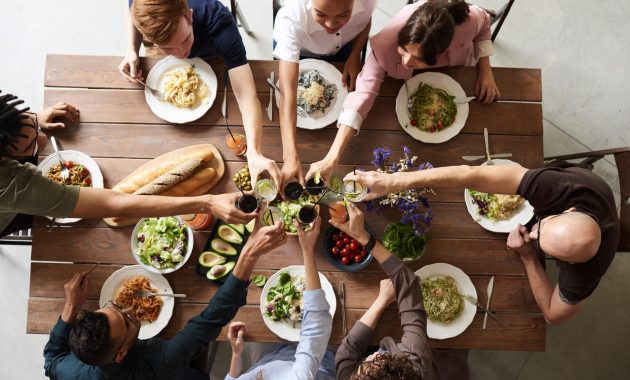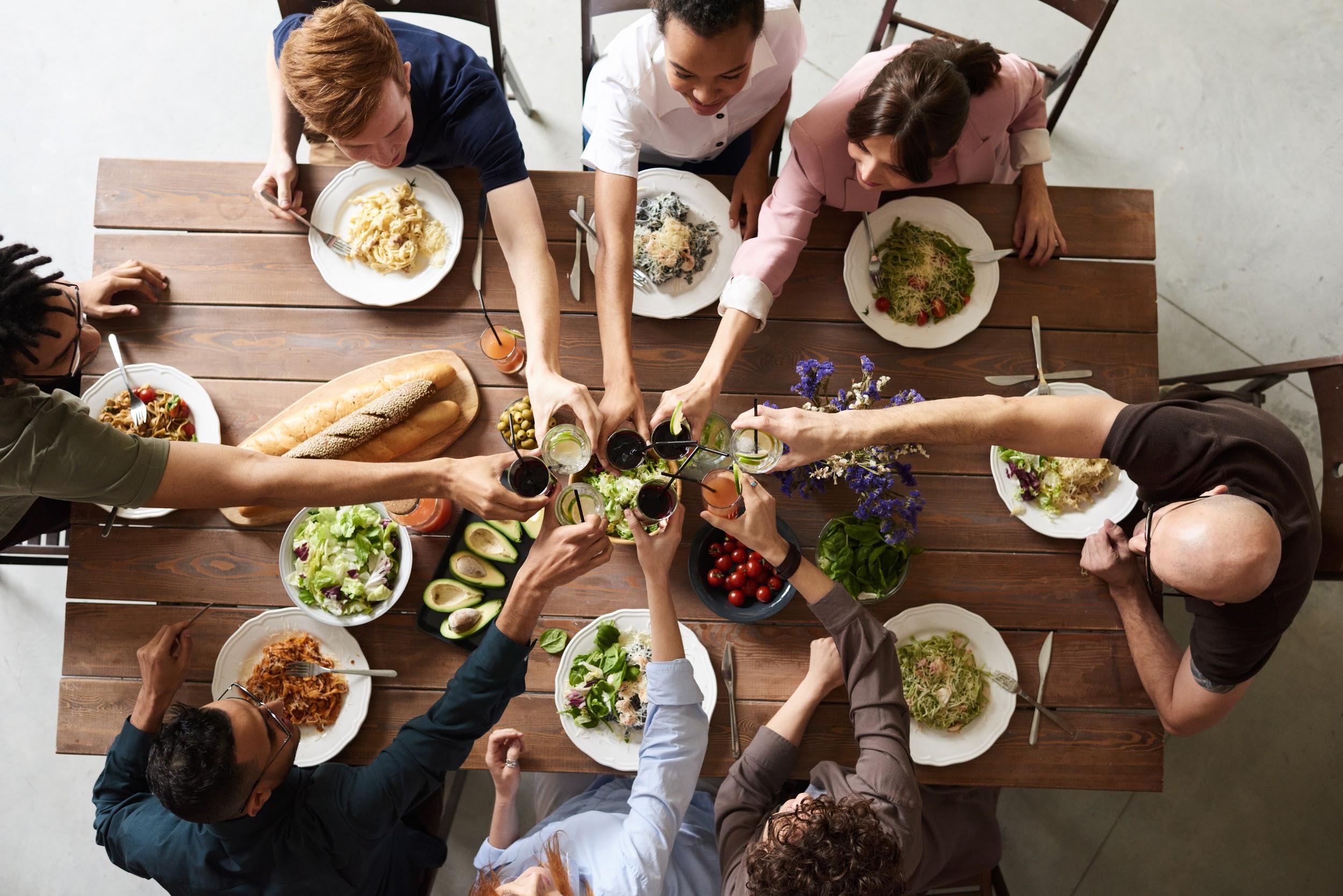
How to Dine With Friends Without Worrying About Diabetes: A Guide to Social Eating
The joy of sharing a meal with friends is a cornerstone of social life. However, for individuals managing diabetes, this simple pleasure can be overshadowed by concerns about blood sugar levels and dietary restrictions. Navigating social gatherings while adhering to a diabetes-friendly diet requires planning and awareness. This article offers practical strategies and insights on how to dine with friends without worrying about diabetes, ensuring enjoyable and healthy experiences.
Understanding the Challenges of Social Eating with Diabetes
Managing diabetes involves careful monitoring of carbohydrate intake, meal timing, and portion sizes. Social settings often present challenges. These include unpredictable food choices, the temptation of high-sugar or high-fat dishes, and the pressure to conform to others’ eating habits. Furthermore, alcohol consumption, common in social events, can significantly impact blood sugar levels. Understanding these challenges is the first step in developing effective coping mechanisms. Knowing how to dine with friends without worrying about diabetes starts with recognizing the potential hurdles.
Planning Ahead: The Key to Success
Preparation is paramount when it comes to how to dine with friends without worrying about diabetes. Proactive planning allows individuals to make informed choices and minimize the impact of social events on their health. This involves several key strategies:
- Communicate with Hosts: Inform your friends or the host about your dietary needs. This allows them to consider diabetes-friendly options when planning the meal.
- Research the Restaurant: If dining out, check the menu online beforehand. Look for nutritional information, including carbohydrate counts and ingredient lists. Opt for restaurants that offer healthy choices.
- Plan Your Meals: Consider what you will eat throughout the day. This includes pre-meal snacks to prevent overeating at the event.
- Pack Smart: Bring a diabetes-friendly dish to share, ensuring you have a safe and delicious option.
Making Smart Food Choices
At the event, making informed food choices is crucial. Focusing on portion control, balancing macronutrients, and selecting healthier alternatives can help maintain stable blood sugar levels. Here’s how:
- Prioritize Non-Starchy Vegetables: Fill your plate with vegetables. They are low in carbohydrates and high in fiber.
- Choose Lean Proteins: Opt for grilled, baked, or steamed proteins. Avoid fried or heavily sauced dishes.
- Be Mindful of Carbohydrates: Carefully assess carbohydrate content. Select whole grains over refined grains. Be aware of hidden sugars in sauces and dressings.
- Control Portion Sizes: Use a smaller plate. Take smaller portions of high-carbohydrate foods.
- Avoid Sugary Drinks: Choose water, unsweetened tea, or diet soda. Limit or avoid alcoholic beverages.
Navigating Alcohol Consumption
Alcohol can significantly affect blood sugar levels. It is important to understand how different types of alcohol impact diabetes management. Here’s what you should consider:
- Moderate Intake: If you choose to drink alcohol, do so in moderation. Guidelines suggest no more than one drink per day for women and two drinks per day for men.
- Pair with Food: Always consume alcohol with food. This helps slow the absorption of alcohol and prevent blood sugar spikes or drops.
- Choose Wisely: Opt for drinks with lower carbohydrate content, such as dry wines or light beers. Avoid sugary cocktails and mixers.
- Monitor Blood Sugar: Regularly check your blood sugar levels before, during, and after consuming alcohol.
Staying Active During Social Events
Physical activity plays a vital role in managing diabetes. Incorporating movement into social events can help improve blood sugar control. Consider these strategies:
- Walk After Meals: A short walk after a meal can help lower blood sugar levels.
- Participate in Activities: Engage in activities like dancing or playing games. These activities can burn calories and improve insulin sensitivity.
- Stay Hydrated: Drink plenty of water to stay active and avoid dehydration.
Dealing with Emotional and Social Pressures
Social events can present emotional and social pressures. It’s important to develop strategies for managing these pressures. This includes:
- Assertiveness: Learn to politely decline foods that don’t fit your dietary needs.
- Positive Self-Talk: Remind yourself of your health goals. Focus on the positive aspects of the event.
- Seek Support: Talk to trusted friends or family members. Share your challenges and successes.
The Importance of Monitoring and Adjusting
Regular blood sugar monitoring is crucial. It allows you to see how different foods and activities affect your levels. This information helps you make adjustments to your meal plan, medication, and lifestyle. Keeping track of your readings and sharing this information with your healthcare team is essential for optimal diabetes management. Knowing how to dine with friends without worrying about diabetes includes the willingness to adapt.
Recipes and Meal Ideas for Social Gatherings
Having diabetes-friendly recipes can expand your dining options. Here are some ideas:
- Appetizers: Vegetable sticks with hummus, shrimp cocktail.
- Main Courses: Grilled chicken or fish with a side salad.
- Side Dishes: Roasted vegetables, quinoa salad.
- Desserts: Berries with whipped cream, sugar-free jello.
These recipes provide delicious and healthy options. They can be shared with friends and family. They demonstrate that managing diabetes doesn’t mean sacrificing enjoyment.
Communicating Your Needs Effectively
Clear communication is essential. Inform your friends and family about your dietary needs. Be open about your diabetes. This facilitates understanding and support. Here’s how to communicate:
- Be Upfront: Explain your diabetes management.
- Be Specific: Describe your dietary restrictions.
- Offer Solutions: Suggest diabetes-friendly meal options.
- Be Patient: Educate others on your needs.
Building a Support System
A strong support system can make a significant difference. Lean on friends, family, and healthcare professionals. Share your challenges and celebrate your successes. Support can help you to dine with friends without worrying about diabetes.
- Friends and Family: Enlist the support of your loved ones.
- Healthcare Professionals: Consult your doctor, dietitian, or diabetes educator.
- Support Groups: Join diabetes support groups.
Embracing the Social Experience
Dining with friends should be enjoyable. It is about sharing experiences and building relationships. With proper planning and adaptation, you can savor the social experience without compromising your health. Remember that managing diabetes is a journey. Learning how to dine with friends without worrying about diabetes is achievable. It enhances your quality of life.
Conclusion
Managing diabetes while enjoying social events is possible. By planning ahead, making smart food choices, and communicating effectively, you can navigate social gatherings with confidence. Remember to monitor your blood sugar levels and adjust your strategies as needed. Embrace a proactive approach to diabetes management. This allows you to enjoy life to the fullest. Understanding how to dine with friends without worrying about diabetes is about balance. It’s about enjoying social connections without compromising health.
[See also: Related Article Titles]

